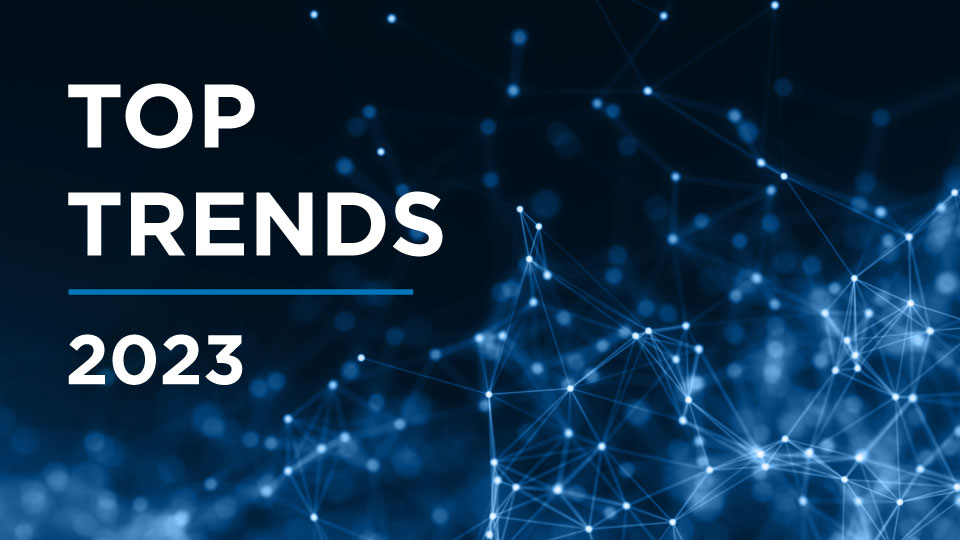In the past pandemic years, the economy has learned to react more flexibly to changing market conditions. Only those who are prepared for continuous change can secure their own entrepreneurial future. The current geopolitical situation demands that these lessons be implemented quickly and that business processes be made more sustainable and secure than ever before.
From the Fabasoft Approve perspective, industry clouds, digital ecosystems as well as intelligent automation of both industrial and administrative processes constitute essential aspects for generating competitive advantages.
Digital Ecosystems, Industry Clouds and Super-Apps
According to the current guide to business transformation in industrial SMEs by the German Association of Mechanical and Plant Engineering (VDMA), ecosystems, digital platforms, and value-added services will be crucial factors for staying competitive.
The EU comes to a similar conclusion in the upcoming "Roadmap to the Cloud Strategy" in which it cites cloud platforms and ecosystems as the enablers for climate-oriented optimization in areas such as CO2 savings, resource conservation, or zero waste.
The analyst firm Gartner, too, counts industry-specific cloud platforms ("vertical-market clouds") among the "emerging technologies". According to Gartner, such industry clouds will have a lasting effect and blur the lines between established cloud services such as SaaS, PaaS, and IaaS.
In addition, Padraig Byrne, Senior Director Analyst at Gartner, recommends to start developing "super-apps". According to his definition, "super-apps combine features of a normal app with the features of an app platform and an ecosystem. Super-apps offer not only their own differentiated features, but also the ability to develop third-party apps with a data model shared between the core app and third-party software."
Digitization as Sustainability Driver
According to a European Commission press release, European companies are global leaders in sustainability performance. "Sustainability" is embedded in the EU's values and represent a particular focus in the business world due to ESG (Environment, Social, Governance) reporting. Digital technologies can play a leading role when it comes to ecological sustainability. Especially with respect to energy reduction procedures for IT services, the use of analytics, and the traceability of renewable energies.
Especially when awarding new digitization projects, companies should take these aspects into consideration and pay close attention e.g. to how cloud providers operate their service infrastructure (keyword "carbon-aware cloud services").
Technology-Based Supply Chains
The crises of the past few years have prompted 64 per cent of supply chain executives to drastically increase their spending on digital technologies to make operations more responsive and future-oriented. This was revealed in the latest MHI Industry Report "Evolution to Revolution: Building the Supply Chains of Tomorrow": The pandemic has led to unprecedented supply chain disruptions and bottlenecks. Now is the time to use the lessons learned and invest in the right technological solutions, as the authors of the study say.
Undisputed: The digital transformation is experiencing an enormous push and is a ubiquitous topic. The fact that IT projects are often lengthy and sometimes break the budget is, unfortunately, just as undisputed. No-code and low-code approaches to software customization come into play here. They offer the perfect basis for "do it yourself": employees from the specialist departments adapt input masks, metadata models, or automated processes themselves – without programming knowledge.
If, e.g., the supply chain has to be adapted quickly to new situations, this represents a decisive competitive advantage.
Office & Shop Floor Automation
"Factory automation" is known to free people from monotonous, dirty and dangerous work. Automation increases consistency and consequently also prevents errors due to manual influences.
In manufacturing companies, however, the automation of office and administrative tasks is still lagging behind. This is especially true of operations that involve the use of paper forms, folders, and spreadsheets. A typical workflow here involves people who create documents, edit them and forward them. For reasons of traceability, these steps must be recorded in order to create a history for audits.
The objective is to merge shop floor and office floor and also to automate administrative processes. Information from the production level, such as machine data, forms the basis for digital twins. These in turn make it possible to merge them with data from the office floor, e.g., 3D models, manuals, certificates, or contracts, as well as information from quality management or from testing or approval processes. By using a process-driven digital platform for technical data and documents, partners can be networked along the entire supply chain and thus realize cross-company workflows.
The Future is Now: Intelligent Automation of Processes
The use of digital ecosystems, industry clouds, and super-apps breaks down data silos and thus enables companies to look beyond their own horizons. By means of "Business Intelligence" within these platforms, reliable analyses are created from the most diverse areas of a smart factory, which can contribute significantly to the intelligent control of industrial processes.




